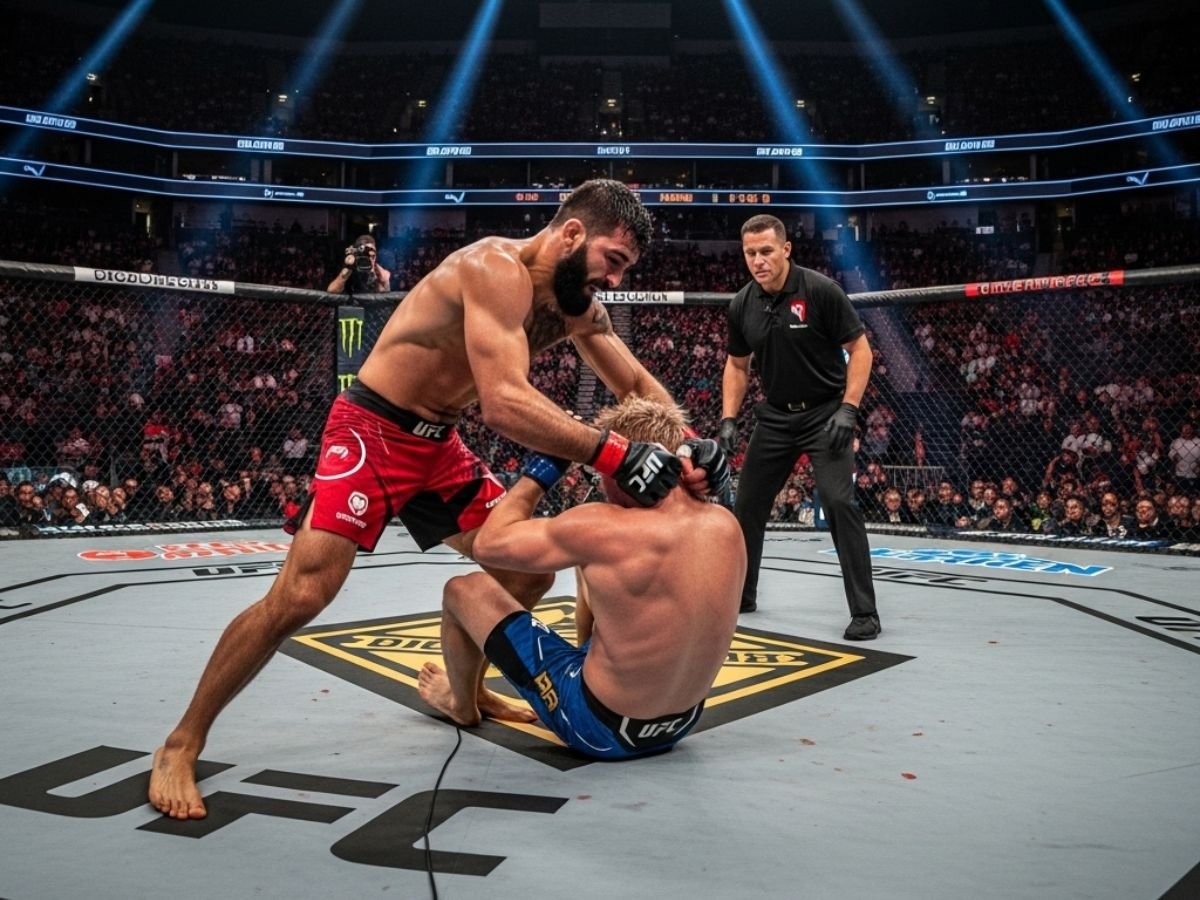When most casual fans bet on a UFC fight, they look at the fighters’ win-loss records and maybe a quick highlight reel. On the surface, that seems logical: a fighter with a 15-2 record must be better than one who’s 10-5, right? In reality, those numbers tell only part of the story.
Sportsbooks and sharp bettors know that win-loss records can be misleading. A fighter could rack up wins against low-level competition or pad their record with favorable matchups. On the other hand, an experienced fighter with several losses may have faced elite opponents and developed skills that make them a dangerous underdog.
Also Read: UFC betting explained: Moneyline, method of victory, and round props
If you’re serious about UFC betting in the US, you need to dig deeper than the surface stats. Advanced metrics, fight style analysis, and situational factors all play a role in predicting how a bout might unfold. This guide will show you how to analyze fighters beyond their records and make smarter, more profitable UFC betting decisions.
Why win-loss records don’t tell the full story
- Quality of opponents: Beating unranked fighters is not the same as defeating top contenders.
- Style matchups: A grappler’s losses to strikers don’t mean much if their next opponent is another grappler.
- Career stage: Young fighters may improve rapidly, while veterans could be past their peak despite good records.
- Fight location and rules: Travel, altitude, and cage size can impact outcomes in ways win-loss numbers don’t capture.
Key factors to analyze UFC fighters
1. Striking and striking defense
- Significant strikes landed per minute (SLpM): Measures offensive output.
- Significant strike accuracy: How efficient a fighter is with their shots.
- Strikes absorbed per minute (SApM): Reveals defensive weaknesses.
- Striking defense percentage: Shows ability to avoid opponent’s shots.
Bettors can spot value by identifying fighters with strong defense who face opponents reliant on volume striking.
2. Grappling and takedown metrics
- Takedown average per 15 minutes: Indicates wrestling dominance.
- Takedown accuracy and defense: Shows effectiveness and resistance on the ground.
- Submission attempts per 15 minutes: Reveals finishing ability beyond striking.
For betting on props like “fight goes the distance,” grappling stats are crucial. Wrestlers often control the pace, reducing knockout risk.
3. Fight style and tendencies
- Is the fighter a striker, grappler, or balanced?
- Do they start fast or conserve energy for later rounds?
- Are they aggressive finishers or point scorers who rely on decisions?
Understanding styles helps bettors predict methods of victory, which can offer higher-value odds than simply picking a winner.
4. Opponent quality and fight history
- Check strength of schedule: Who have they beaten or lost to?
- Look at rematches: Did the fighter improve since the first meeting?
- Consider weight class moves: Some fighters struggle when cutting or bulking up.
5. Intangibles
- Cardio and conditioning: Fighters with stamina can win late rounds even if they start slow.
- Durability and chin: Past knockout losses may signal vulnerability.
- Camp and training partners: Top gyms and coaching often translate to sharper fight IQ.
- Recent layoffs or injuries: A year away from the octagon can impact timing and sharpness.
Also Read:Arbitrage betting in the US: Is it possible across different sportsbooks?
How to use this analysis in UFC betting
- Go beyond moneylines: Use analysis to target props (method of victory, round betting, over/unders).
- Spot underdogs with value: Fighters with tough losses may be underrated by sportsbooks.
- Watch for stylistic mismatches: A strong wrestler against a striker with poor takedown defense is often a hidden gem.
- Monitor weigh-ins and press events: Body language, weight cuts, and confidence can provide last-minute betting edges.
FAQs
Q1: Why shouldn’t I just bet on the fighter with the better record?
Because records don’t reflect opponent strength, fighting style, or context. A fighter with more losses may actually be more dangerous depending on the matchup.
Q2: Where can I find UFC advanced stats?
Websites like UFC Stats, Tapology, and FightMetric offer detailed breakdowns of striking, grappling, and fight history.
Q3: Are advanced stats better for betting on props or outright winners?
Both. Stats help spot underdogs for moneyline bets, but they are especially powerful in props like method of victory and total rounds.
Q4: Do training camps really matter in UFC betting?
Yes. Fighters who switch to elite gyms often show immediate improvements in strategy, conditioning, and technique.
Q5: Can advanced stats guarantee winning UFC bets?
No. They improve your decision-making but betting always carries risk. Use them alongside bankroll discipline and responsible gambling practices.








